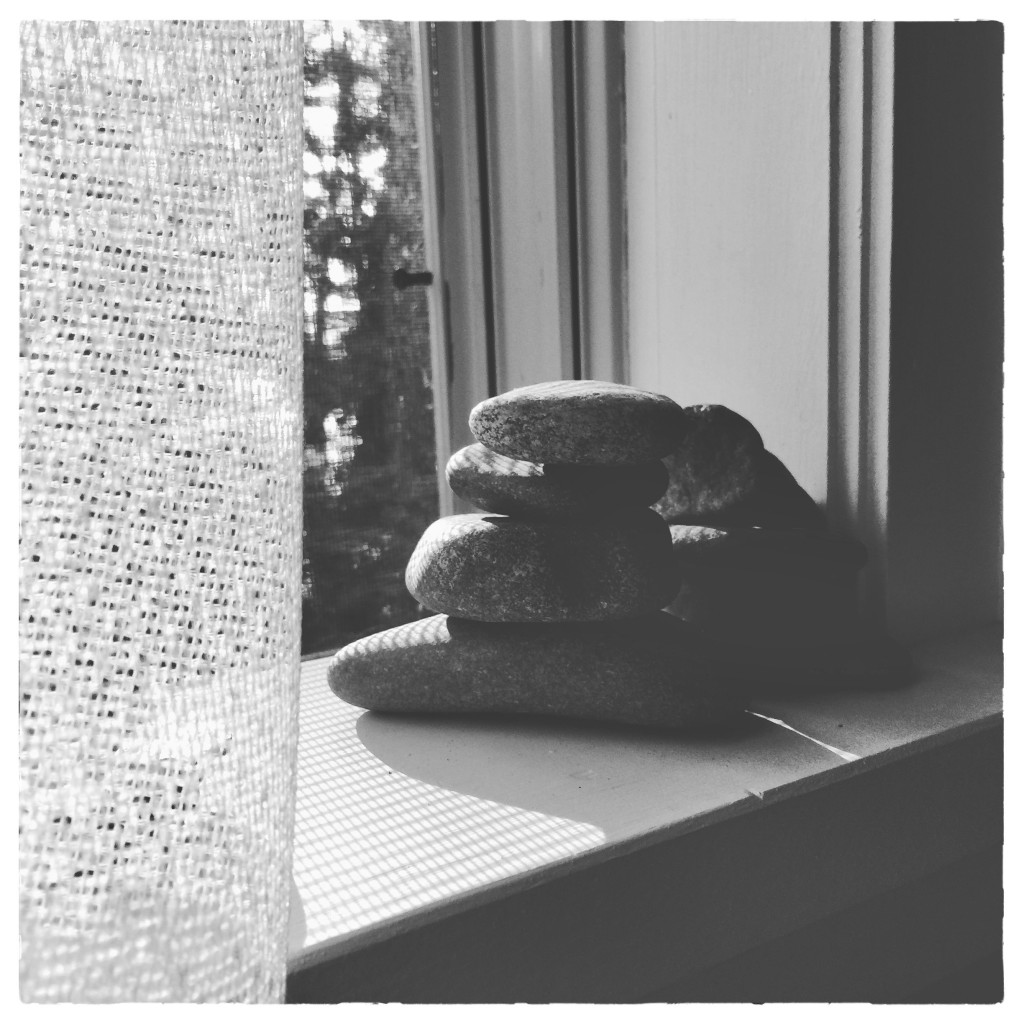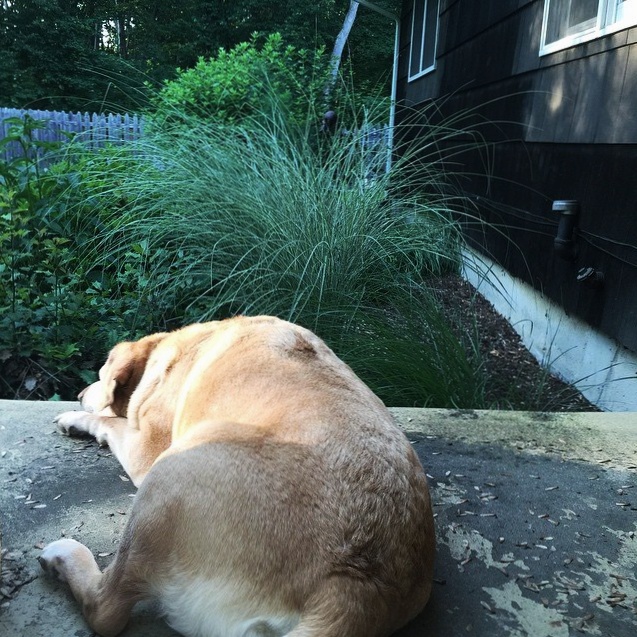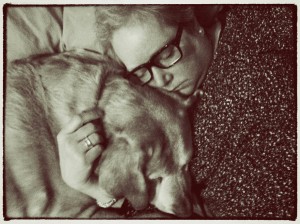Months ago, when the manuscript I’ve been working on was not yet finished, I signed up for a three-day silent meditation retreat at the Garrison Institute, a former Catholic monastery overlooking the Hudson River. I knew the retreat leaders well: Sylvia Boorstein and Sharon Salzberg have been among the foremost teachers and interpreters of the Metta Sutta for decades, and whenever I’m at a loss — whenever my heart cramps with fear and upset, whenever the tinge of angry bile threatens to choke me — I pick their books off my shelf and read them.
Back then, when I signed up and plunked down my shekels and convinced Susan to come with me, I had no idea where I would be once the retreat rolled around: I didn’t know whether my new book would be done, I didn’t know if I’d still be chained to my desk, I didn’t know whether I’d be fighting another in a long line of the lung infections that have plagued me now for three years, I didn’t know whether I’d be drowning under essay and article deadlines. I didn’t know whether I could disentangle myself from my mother’s gravitational orbit for three days without causing her major upset and tumult. (First stop meditation, she said. Next stop Moonies.) This is the quandary we face when we plan ahead: will we or won’t we? Can we or can’t we? Should we or shouldn’t we? Calendars are a leap of faith, a construct of optimism and whim: we will put one foot in front of the other, the clock will tick and time will pass; one hundred dinners will be eaten, one hundred dirty dishes washed, the sun will set, the sun will rise. Everything passes. Impermanence.
It has taken me longer than I expected to write Treyf (which is partly why my presence here has been so infrequent; I’m back, though); when I began making notes for it, a little while after Poor Man’s Feast came out, I was certain that I knew exactly what I wanted it to be: a story of forbidden foods in my life and the lives of my parents and grandparents; A walk through the Talmudic minefields of the culinarily taboo during my childhood in 1960s and 1970s Forest Hills, New York — the days of key parties and fondue and Manson and Son of Sam and the 1977 Yankees; children where I lived grew up very quickly — when my father made Spam and eggs for breakfast just a few hours before my grandmother lit our shabbos candles and we ordered pizza for dinner, half sausage and half not. It was meant to be about changing mores at the table, about the cultural shape-shifting that takes place as the old gives way to the new, and we look back at the past from the vantage point of the future. How much do we cling to; how much do we relinquish without forgetting who we are? The table is our anchor, our silent witness knitting together our stories like Madame DeFarge as the days and months unspool; the table watches us change and grow at the most visceral level.
This is what Treyf was meant to be, and it is. But it also took on a mind of its own. The act of writing, like the act of cooking, forces you to come face to face with fluidity and change. You cede control to the work itself. You stand back and trust that the wormhole your narrative is dragging you down (try and fight it; good luck with that) is lit from within by a force you are acquainted with only in the dead of night, in your deepest dreams; you might not wind up where you planned to be and insofar as the physical process of writing is controlled by you, you very often will end up in another country entirely, as though a total stranger was driving your bus across borders you’ve only ever known to be forbidden.
So Treyf became the story of rule-breaking well beyond the table, and how — if we are going to set our demons free and step into a future that is uniquely ours and that makes us who we are — we have to make a choice between what was, and what is. This, of course, is never easy, because change sucks and most of us hate it and fight it tooth and nail (I know I do). Also, people want you to be who they want you to be; you might have noticed that. They want you to remain who you always were; it’s tidier for everyone if you just stick to the script that they’re familiar with. When you step out of your own comfort zone — when you break the rules — you push other people out of their comfort zones, too. You risk disappointing them. And then, if love is really there, you wish each other well and you grow together into a new and different place. Or you don’t. So the writing of Treyf was complicated. As Faulkner (I’m pretty sure it was Faulkner) once said it whupped me but it ain’t killed me. Although, given the seven very serious lung infections I’ve had since 2013, it came close.
And then Treyf was finished and I looked up and the world had completely changed (again) while I was busy writing; there was Paris and Bataclan and refugees and San Bernardino. There was Trump, and astonishingly frightening, xenophobic threats the likes of which my grandmother used to reminisce about when I was growing up. There were close friends who were suddenly fighting various illnesses, and children of other friends who were undergoing scary surgeries. Everything suddenly seemed much louder and almost blinding with intensity; non-stop violence and the sort of patriotic rage that my great uncle watched unfold on the streets of Vienna in 1938 shrieked and shouted at me, and I could barely make out what it was all saying in the way that a vindaloo can be so incendiary, you can’t actually taste the lamb. To calm myself and turn down the screeching noise, I stepped into our kitchen the way I always do when I’m unsettled and sad, but I forgot to focus on my task: I immolated the chicken and carbonized the steak and turned the pasta into spackle. One night, I boiled my favorite saucepan dry and then black, and set off the smoke alarm; I knocked over three expensive Burgundy glasses that fell one by one like dominoes before shattering into a million shards.
This is what happens when you’re pitched off your center, when you’ve lost your balance, when you stop paying attention because if you don’t, the glare will be too bright, and the stimuli too stimulating. I looked at the calendar hanging on the fridge; months had passed since I signed up for the retreat at Garrison and suddenly, it was just days away. I had so much to do: revisions on Treyf, shopping for the holidays, filing my year-end articles, making donations to my favorite organizations. It would keep: Susan and I packed and went to Garrison and sat in silence for three days; we listened to Sharon and Sylvia and read the Metta Sutta.
We watched the sun rise and set and rise and set over the Hudson the way it has forever, and the way it always will; we put one foot in front of the other and moved forward with the calendar, into the end of the year.









